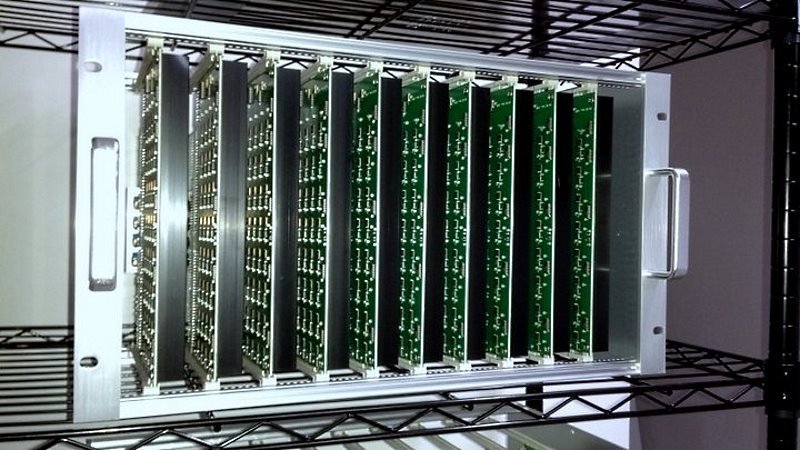Ethereum Workshop
National Chengchi University
Service Science Research Center
johnhckuo@gmail.com
1. The philosophy behind blockchain
2. What is Ethereum?
3. Pros & Cons of ethereum
4. Supporting tools for ethereum
5. Developing framework
6. BlockCypher
7. Truffle & TestRPC – A quick testing environment for block chain
Outline
The philosophy behind blockchain
Blockchain ?
Blockchain technology is the technological basis of Bitcoin, first described by its mysterious author Satoshi Nakamoto in his white paper
“Bitcoin: A Peer-to-Peer Electronic Cash System"


An online global ledger
A question
How to let many different users agree on the current state of the blockchain even though they don't trust each other or any central authority?

This is a challenging problem, and until the Bitcoin network was launched, it had remained unsolved.

Consensus
How Bitcoin achieve consensus?
Proof of Work, also called POW
PoW algorithms are able to use the number and difficulty of solutions being found to measure how much of the network agrees on the current state of the blockchain.
The concept of PoW


This won't work !


Still not good enough


Application-specific integrated circuit
It takes lots of works to mine some blocks
But they get bitcoins for reward :D
Charactieristics of PoW
- Hard to compute
- Easy to verify
That way, users can simply pick the longest valid chain with the highest amount of work as the correct chain.
Good Side
That requirement for resources is a good thing, because it means that interfering with the group's consensus takes a lot of resources (a.k.a. money).
Bad Side :(
But this implies that Proof of Work is extremely inefficient in term of energy, and therefore also very expensive; which incentivize miners to centralize the hashing power
But this implies that Proof of Work is extremely inefficient in term of energy, and therefore also very expensive; which incentivize miners to centralize the hashing power
→ obviously not desirable for a network whose goal is to minimize the need to trust third parties.
Catchy part
Bitcoin maybe viewed as centralized in China by a small group of people holding the mining power which may be greater than 51%.
Proof of Stake
- Agreement within the block chain would be measured not on the basis of how much computing power agrees with the current state, but instead on the basis of how much digital currency agrees with the current state.
But it is another story :p
So far we are talking about block chain used in Bitcoin
Different form Ethereum !
The Differences
- Bitcoin is more focused on being a currency
- Ethereum is more focused on being a smart contract platform, which is a general-purpose, global blockchain that can govern both financial and non-financial types of application states
They both play their roles well, even though they are separate roles with some overlap
Things in common
1. Cryptocurrency
2. An inherent blockchain
3. A decentralized consensus-based proof mechanism
4. Miners that support the network
Things not in common
- Ethereum was conceived from Day 1 as a software development platform for decentralized applications, and its blockchain was specifically designed to support executing apps on it
So what is the difference between ether & bitcoin
- Instead of focusing on fulfilling financial transactions, ether is more like an incentive plumbing in the form of required “crypto-fuel” to pay for the transaction fees necessary to run the various smart business logic programs that users submit to its blockchain
ether-based block chain
- When you run an application in the cloud, you are charged based on a combination of time, storage, data transfer and computing speed requirements.
It’s a form of cloud-based micro-value pricing that un-bundles a layer from the traditional cloud computing stack.
Ethereum excels at
Programmability
Scalability
Upgradability
Transactions Manageability
Visibility
Affordability
Security
Speed/Performance
High Availability
Extensibility
btw
Mining in the Ethereum context can be done by regular computers !
Some basic concepts in Ethereum
Smart Contract
- Smart Contract : Smart contracts are like cryptographic “boxes” that contain a value and only unlock it if certain conditions are met. They typically encapsulate some logic, rules, a process, or an agreement between parties. When they are launched on Ethereum, the network enforces their ramifications.
Gas
When a contract is executed as a result of being triggered by a message or transaction, every instruction is executed on every node of the network.
This has a cost: for every executed operation there is a specified cost, expressed in a number of gas units.
→ Prevent deliberate attacks and abuse on the Ethereum network.
→ Gas limit keeps the network decentralized
Gas Cost

Some concepts
-
Solidity
- Solidity is the most popular language for smart contract
-
solc
- After writing a contract in Solidity, use solc to compile it
-
web3.js API
-
Once a Solidity contract is compiled with solc and sent to the network, you can call it using the Ethereum web3.js JavaScript API and build web apps that interact with contracts
-
-
Once a Solidity contract is compiled with solc and sent to the network, you can call it using the Ethereum web3.js JavaScript API and build web apps that interact with contracts
Some concepts
-
DApp
- Decentralized App, what applications using smart contracts are called in the Ethereum community.
-
Node
- Using this to mean you can run a node and through it read and write to the Ethereum blockchain, i.e., use the Ethereum Virtual Machine.
How to connect to Ethereum?
Block Cypher
What BlockCypher excels at
- Simple and easy web APIs (REST) enable developers to build blockchain applications quickly and confidently.
- They maintain a cluster of distributed databases which contain all transactional data for the entire blockchain.
Almost all resources exist under a given blockchain
curl -s https://api.blockcypher.com/v1/eth/main
{
"name": "ETH.main",
"height": 1663353,
"hash": "863dda1124f2b438c607f5b8d00e8511f6f8d206b21aad3b9c460b8c5221e31b",
"time": "2016-06-08T00:46:34.795856213Z",
"latest_url": "https://api.blockcypher.com/v1/eth/main/blocks/863dda1124f2b438c607f5b8d00e8511f6f8d206b21aad3b9c460b8c5221e31b",
"previous_hash": "783aa3ef1b45121ee5bc33acb6c5986d6132d04cf20c85ba256b155b2c196006",
"previous_url": "https://api.blockcypher.com/v1/eth/main/blocks/783aa3ef1b45121ee5bc33acb6c5986d6132d04cf20c85ba256b155b2c196006",
"peer_count": 52,
"unconfirmed_count": 11924,
"high_gas_price": 40000000000,
"medium_gas_price": 20000000000,
"low_gas_price": 5000000000,
"last_fork_height": 1661588,
"last_fork_hash": "79075d95aacc6ac50dbdf58da044af396ca97e09cbb31527809579cc96f1c8a7"
}The API always returns values in wei, the lowest non-divisible unit in Ethereum.
There are 10^18 wei in a single ether (1,000,000,000,000,000,000w = 1ETH).
We can inspect each block by specifying height, address
curl -s https://api.blockcypher.com/v1/eth/main/blocks/7
{
"hash": "e0c7c0b46e116b874354dce6f64b8581bd239186b03f30a978e3dc38656f723a",
"height": 7,
"chain": "ETH.main",
"total": 0,
"fees": 0,
"size": 1078,
"ver": 0,
"time": "2015-07-30T15:28:30Z",
"received_time": "2015-07-30T15:28:30Z",
"coinbase_addr": "dd2f1e6e498202e86d8f5442af596580a4f03c2c",
"relayed_by": "",
"nonce": 13599487003767981,
"n_tx": 0,
"prev_block": "1f1aed8e3694a067496c248e61879cda99b0709a1dfbacd0b693750df06b326e",
"mrkl_root": "ff8d97d9ca01ee59c793c4da2ba4ce8c31d358b42f216ab2f11af4bb097b6a2b",
"uncles": [
"4b8729311c5b59f418c5154fd54d85e6a8b42eabf83a1d3c05c754a8f10354cc"
],
"txids": [],
"depth": 1656646,
"prev_block_url": "https://api.blockcypher.com/v1/eth/main/blocks/1f1aed8e3694a067496c248e61879cda99b0709a1dfbacd0b693750df06b326e",
"tx_url": "https://api.blockcypher.com/v1/eth/main/txs/"
}The API always returns values in wei, the lowest non-divisible unit in Ethereum.
There are 10^18 wei in a single ether (1,000,000,000,000,000,000w = 1ETH).
Generate an address for transaction
curl -sX POST https://api.blockcypher.com/v1/eth/main/addrs?token=YOURTOKEN
{
"private": "44c984a089184a9a659e10210af360049f366a34f7f3cb253ac5cbfcb33f3d7c",
"public": "04b7de9b47fc1fb278648266316dffe47cc7f5280b69b05b5770ad1624ee3da7647c98ade5e4c35b99e606535eaca54db0f913c8aa1fa7226f15b9996325d0989d",
"address": "e3f7e628fff7589218d88ae1d6bcdac52fef2168"
}Creating Transactions
curl -sd '{
"inputs":[
{"addresses": ["add42af7dd58b27e1e6ca5c4fdc01214b52d382f"]}
],
"outputs":[
{"addresses": ["884bae20ee442a1d53a1d44b1067af42f896e541"],
"value": 4200000000000000}
]}' https://api.blockcypher.com/v1/eth/main/txs/new?token=YOURTOKEN
{
"tx": {
"block_height": -1,
"block_index": 0,
"hash": "9403244c6bcfe4063e7fb33138b02881d7a72ccdbd9c04d9abdff2b432d67ada",
"addresses": [
"add42af7dd58b27e1e6ca5c4fdc01214b52d382f",
"884bae20ee442a1d53a1d44b1067af42f896e541"
],
"total": 4200000000000000,
"fees": 861000000000000,
"size": 44,
"gas_used": 0,
"gas_price": 41000000000,
"relayed_by": "",
"received": "2016-06-08T01:32:35.573921633Z",
"ver": 0,
"double_spend": false,
"vin_sz": 1,
"vout_sz": 1,
"inputs": [
{
"sequence": 0,
"addresses": [
"add42af7dd58b27e1e6ca5c4fdc01214b52d382f"
]
}
],
"outputs": [
{
"value": 4200000000000000,
"addresses": [
"884bae20ee442a1d53a1d44b1067af42f896e541"
]
}
]
},
"tosign": [
"a83f5bea598e0d217a03a2646d6c49edb2e99daf4537b2c09b008df76b77acec"
]
}Look Up the balance in your account
curl -s https://api.blockcypher.com/v1/eth/main/addrs/$YOURADDRESS/balance
// it should return this
{
"address": "738d145faabb1e00cf5a017588a9c0f998318012",
"total_received": 9762206505909057760,
"total_sent": 6916970312523512365,
"balance": 2845236193385545395,
"unconfirmed_balance": 0,
"final_balance": 2845236193385545395,
"n_tx": 702,
"unconfirmed_n_tx": 0,
"final_n_tx": 702
}
//but actually it will return this
{"error": "Address not found or unsupported: 8134d81b5bfc1f9143424bde04d9b969d77b6213"}Why
The address doesn't exist on the Ethereum block chain until it has a transaction associated with it
Without requiring funding an address, if anyone could embed addresses into the block chain, it would be a large DDoS vector.
Create a contract (1/4)
cat publishGreeter.json
{
"solidity":
"contract greeter{
/* define variable greeting of the type string */
string greeting;
/* this runs when the contract is executed */
function greeter(string _greeting) public {
greeting = _greeting;
}
/* main function */
function greet() constant returns (string) {
return greeting;
}
}",
"params": ["Hello BlockCypher Test"]
}Check solidity compilation via non-published test
Create a contract (2/4)
curl -sd @testGreeter.json https://api.blockcypher.com/v1/eth/main/contracts?token=YOURTOKEN
[
{
"solidity":
"contract greeter{
/* define variable greeting of the type string */
string greeting;
/* this runs when the contract is executed */
function greeter(string _greeting) public {
greeting = _greeting;
}
/* main function */
function greet() constant returns (string) {
return greeting;
}
}",
"bin": "606060405260405161023e38038061023e8339810160405280510160008054600160a060020a031916331790558060016000509080519060200190828054600181600116156101000203166002900490600052602060002090601f016020900481019282601f10609f57805160ff19168380011785555b50608e9291505b8082111560cc57600081558301607d565b50505061016e806100d06000396000f35b828001600101855582156076579182015b82811115607657825182600050559160200191906001019060b0565b509056606060405260e060020a600035046341c0e1b58114610026578063cfae321714610068575b005b6100246000543373ffffffffffffffffffffffffffffffffffffffff908116911614156101375760005473ffffffffffffffffffffffffffffffffffffffff16ff5b6100c9600060609081526001805460a06020601f6002600019610100868816150201909416939093049283018190040281016040526080828152929190828280156101645780601f1061013957610100808354040283529160200191610164565b60405180806020018281038252838181518152602001915080519060200190808383829060006004602084601f0104600f02600301f150905090810190601f1680156101295780820380516001836020036101000a031916815260200191505b509250505060405180910390f35b565b820191906000526020600020905b81548152906001019060200180831161014757829003601f168201915b505050505090509056",
"abi": [
{
"constant": false,
"inputs": [],
"name": "kill",
"outputs": [],
"type": "function"
},
{
"constant": true,
"inputs": [],
"name": "greet",
"outputs": [
{
"name": "",
"type": "string"
}
],
"type": "function"
},
{
"inputs": [
{
"name": "_greeting",
"type": "string"
}
],
"type": "constructor"
}
]
}
]Looking good! Now let's publish it to block chain
Create a contract (3/4)
cat publishGreeter.json
{
"solidity":
"contract greeter{
/* define variable greeting of the type string */
string greeting;
/* this runs when the contract is executed */
function greeter(string _greeting) public {
greeting = _greeting;
}
/* main function */
function greet() constant returns (string) {
return greeting;
}
}",
"params": ["Hello BlockCypher Test"],
"publish": ["greeter"],
"private": "3ca40...",
"gas_limit": 500000
}Now publish the greeter contract
Create a contract (4/4)
curl -sd @testGreeter.json https://api.blockcypher.com/v1/eth/main/contracts?token=YOURTOKEN
[
{
"name": "greeter",
"solidity":
"contract greeter{
/* define variable greeting of the type string */
string greeting;
/* this runs when the contract is executed */
function greeter(string _greeting) public {
greeting = _greeting;
}
/* main function */
function greet() constant returns (string) {
return greeting;
}
}",
"bin": "606060405260405161023e38038061023e8339810160405280510160008054600160a060020a031916331790558060016000509080519060200190828054600181600116156101000203166002900490600052602060002090601f016020900481019282601f10609f57805160ff19168380011785555b50608e9291505b8082111560cc57600081558301607d565b50505061016e806100d06000396000f35b828001600101855582156076579182015b82811115607657825182600050559160200191906001019060b0565b509056606060405260e060020a600035046341c0e1b58114610026578063cfae321714610068575b005b6100246000543373ffffffffffffffffffffffffffffffffffffffff908116911614156101375760005473ffffffffffffffffffffffffffffffffffffffff16ff5b6100c9600060609081526001805460a06020601f6002600019610100868816150201909416939093049283018190040281016040526080828152929190828280156101645780601f1061013957610100808354040283529160200191610164565b60405180806020018281038252838181518152602001915080519060200190808383829060006004602084601f0104600f02600301f150905090810190601f1680156101295780820380516001836020036101000a031916815260200191505b509250505060405180910390f35b565b820191906000526020600020905b81548152906001019060200180831161014757829003601f168201915b505050505090509056",
"abi": [
{
"constant": false,
"inputs": [],
"name": "kill",
"outputs": [],
"type": "function"
},
{
"constant": true,
"inputs": [],
"name": "greet",
"outputs": [
{
"name": "",
"type": "string"
}
],
"type": "function"
},
{
"inputs": [
{
"name": "_greeting",
"type": "string"
}
],
"type": "constructor"
}
],
"gas_limit": 500000,
"creation_tx_hash": "61474003e56d67aba6bf148c5ec361e3a3c1ceea37fe3ace7d87759b399292f9",
"address": "0eb688e79698d645df015cf2e9db5a6fe16357f1",
"params": [
"Hello BlockCypher Test"
]
}
]Call Contract Method Endpoint
cat call.json
{
"private": "3ca40...",
"gas_limit": 20000
}
curl -d @call.json -s https://api.blockcypher.com/v1/eth/main/contracts/0eb688e79698d645df015cf2e9db5a6fe16357f1/greet?token=YOURTOKEN
{
"gas_limit": 20000,
"address": "0eb688e79698d645df015cf2e9db5a6fe16357f1",
"results": [
"Hello BlockCypher Test"
]
}call the greet method, using your own private key and gas amount to fund
Truffle + Testrpc
a convenient & cheap way to get started :D
Once your contract is working ok
it’s nice to use a framework for adding a UI and packaging it all up as a DApp
which is what Truffle does
What about Testrpc?
Testrpc will create a private block chain for you
And it will also create a bunch of pre-funded accounts for you
It’s is super fast, so easier to develop and test with
It takes about 23 hours to download the whole block chain ...
- Instead there are ways to run clients on a local testnet for for free.
They won’t download the full blockchain and will create a private instance of the Ethereum network with its own blockchain, so are faster to use for development.
The work flow
1.Start an Ethereum node (e.g. geth, testrpc or ethersim)
2.Compile your Solidity smart contract using solc
→ get back the binary
3.Deploy your compiled contract to the network.
→ get back the contract’s blockchain address and ABI (a JSON-ified representation of your compiled contract’s variables, events and methods that you can call)
4.Call stuff in the contract using web3.js’s JavaScript API to interact with it

Let's get started
You might be curious how to do all these stuffs without API
Steps are as follows
- Install geth
- geth is the the command line interface for running a full ethereum node implemented in Go
- Sync with the Ethereum block chain
- Create smart contract
- Compile it
var greeterSource = 'contract mortal { address owner; function mortal() { owner = msg.sender; } function kill() { if (msg.sender == owner) selfdestruct(owner); } } contract greeter is mortal { string greeting; function greeter(string _greeting) public { greeting = _greeting; } function greet() constant returns (string) { return greeting; } }'
var greeterCompiled = web3.eth.compile.solidity(greeterSource)Deploy the contract
var _greeting = "Hello World!"
var greeterContract = web3.eth.contract(greeterCompiled.greeter.info.abiDefinition);
var greeter = greeterContract.new(_greeting,{from:web3.eth.accounts[0], data: greeterCompiled.greeter.code, gas: 300000}, function(e, contract){
if(!e) {
if(!contract.address) {
console.log("Contract transaction send: TransactionHash: " + contract.transactionHash + " waiting to be mined...");
} else {
console.log("Contract mined! Address: " + contract.address);
console.log(contract);
}
}
})After deployed the contract
Within less than a minute, you should have a log with the contract address, this means you've successfully deployed your contract.
And you will get two data:
- Application Binary Interface
- Contract Address
Calling the contract
var greeter = eth.contract(ABI).at(Address);
greeter.greet();Conclusion
What Ethereum hope
- what developers see is not enough in order to reveal the entire spectrum of the potential of Ethereum.
- Developers need business people as partners who understand Ethereum’s capabilities, and are willing to apply their own experience towards that understanding.
What Ethereum hope
-
From a technology point of view, decentralization is particularly valuable for “base layer” services, i.e. what everything else relies on, such as
- identity
- reputation
- communications
- social networks
- markets
- and making them work without relying on specific trusted intermediaries in the middle.
What Ethereum hope
Business people must learn about decentralization, and ask if old processes can be replaced by decentralized ones, enabled by Ethereum
References
- https://blog.ethereum.org/2015/05/24/the-business-imperative-behind-the-ethereum-vision/
- http://bitcoin.stackexchange.com/questions/1600/where-are-the-users-bitcoins-actually-stored
- https://github.com/ethereum/wiki/wiki
- https://bitcointalk.org/index.php?topic=27787.0
- https://upload.wikimedia.org/wikipedia/commons/thumb/5/55/Proof_of_Work_challenge_response.svg/459px-Proof_of_Work_challenge_response.svg.png
- http://ethdocs.org/en/latest/introduction/what-is-ethereum.html